Encouraging the Church in world mission
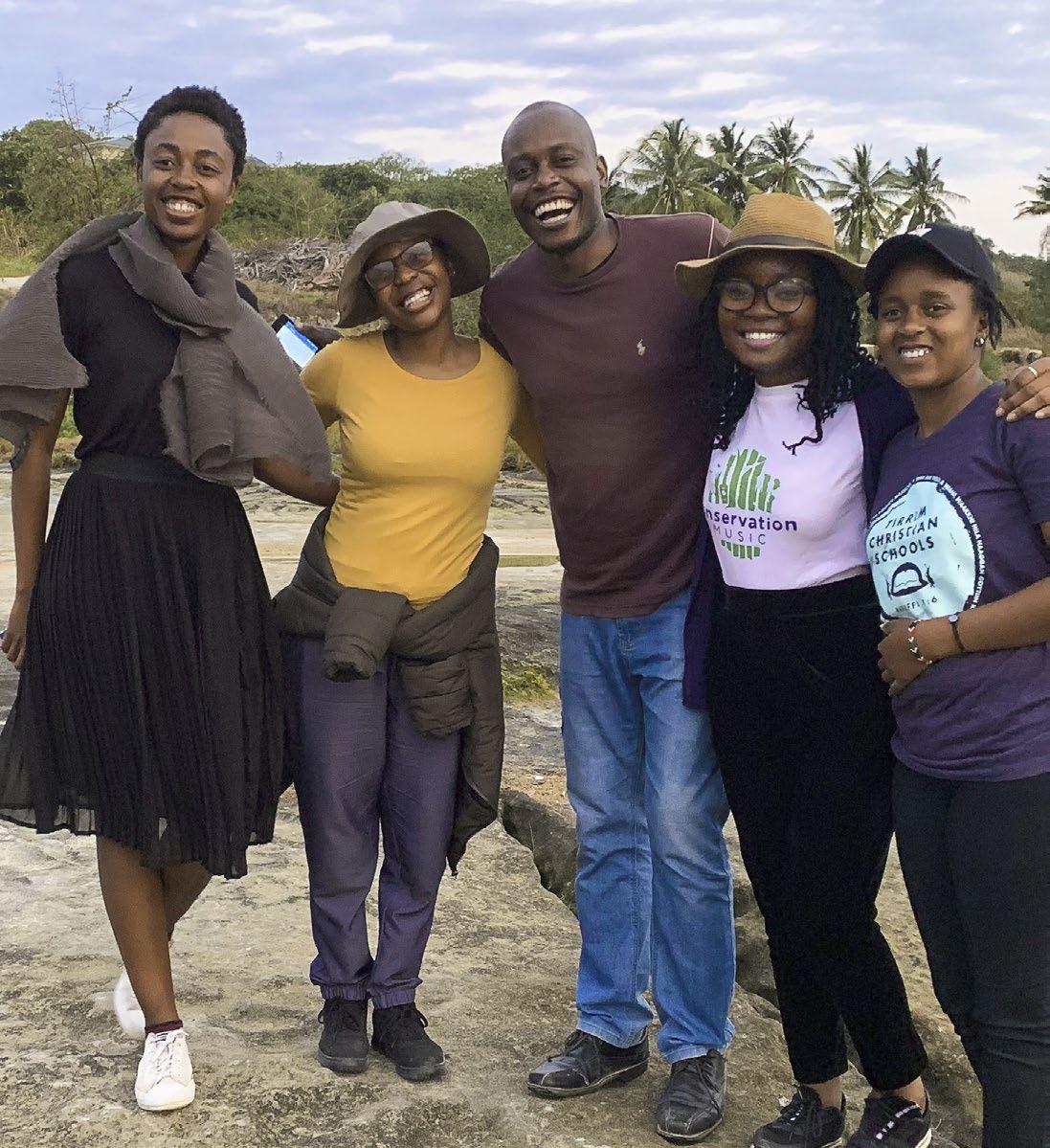


Meet men and women who are mobilising the African Church into missions
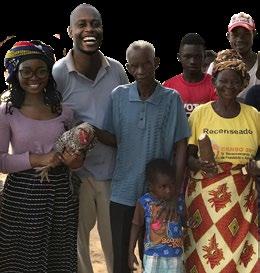


Today, the mission field is becoming the mission force! The church in Africa is taking her place in furthering God’s global mission.
Imagine a group of young people travelling together along the coast of northern Mozambique.
With a team of 15 facilitators globally, Kehinde Ojo conducts trainings in up to a dozen countries annually.
We are all involved to some degree in the ‘art’ of mobilisation –motivating, persuading or influencing others towards something. From this perspective, everyone is a mobiliser but when this is about the Great Commission, it is so important.
The ministry of mobilisation, however, has a significantly different dimension to it; it carries a deeper sense and quality of personal calling. A mobiliser has an inner spiritual stirring, obligation and passion to inspire, challenge and call God’s people to engage in God’s kingdom agenda. Mobilisers are reformers, pointing people from ‘what is’ to ‘what ought to be’ and envisioning God’s people for higher spiritual standards and greater kingdom agenda. They inspire courage, faith and sacrifice. A mobiliser finds their greatest sense of purpose when they see God’s people offer the totality of their lives to God and his eternal purpose. Mobilisers journey in relationships and live in the pursuit of God’s glory among the nations.
We live at a pivotal moment in the history of the Church when Christianity is experiencing incredible growth in the Global South, while facing rapid decline in the West. At the same time, globalisation, migration and global upheavals present this generation with
unprecedented opportunities for crosscultural missions, strategic collaboration and potential for the greatest harvest in the history of the Church.
Indeed, God is establishing the ministry of mobilisation at such a time as this, calling mobilisers from all over the world to rally his Church for global harvest.
Full-time mobilisers, committed to fulltime mobilisation in the power of the Holy Spirit, will be the game changers of global mission in our time.
From Global South to Global North, from cities to villages, to the young and old, men and women, clergy and laity, engineers and entrepreneurs –mobilisers are sounding the trumpet call for all God’s people to engage fully for the fulfilment of the Great Commission. Full-time mobilisers, committed to fulltime mobilisation in the power of the Holy Spirit, will be the game changers of global mission in our time. Concerted, consistent, persistent and strategic mobilisation could unleash the largest
“Mobilization is the process of envisioning and educating God’s people about his strategic plans for the world. And it is the means of keeping them involved and moving forward until they find their specific place and role in world evangelization.” – Fred Markert, GlobalCAST Resources
and most formidable multicultural mission force the world has ever seen. We’re seeing a glimpse of this in Africa.
In this edition of AfriGO, you will read inspiring stories of men and women who are mobilising churches for God’s mission to the nations. You will enjoy the feature article by Brother Kehinde Ojo who, with all the prospects of success by the standards of this world, responded to a better job from on high! Tony and Julia, a young and dynamic couple whom I have known for 10 years, share their amazing testimony as fulltime mobilisers, committed to educating churches in Kenya into global missions. The AfriGO team takes two pages to share mobilisation resources such as online courses, Bible study materials, and more. We also report on five young people who served on a short-term mission trip and how such trips can mobilise the individuals who go and the churches who send them.
May your soul be nourished. May every mobiliser be affirmed and encouraged to sound the trumpet call for God’s mission even louder across Africa.

Sam Ngugi and wife Harriet are the founders and leaders of Mission Campaign Network (MCN), a mission mobilisation agency working to develop a mission vision among college students and local churches in East Africa. They also launched GEN12 – a mission agency for sending African missionaries among Least Reached People Groups.
For from the rising of the sun to its setting my name will be great among the nations, and in every place incense will be offered to my name. For my name will be great among the nations. (Malachi 1:11 ESV).
Today, the mission field is becoming the mission force! The church in Africa is taking her place in furthering God’s global mission. But the first and important step in doing this, according to Jesus in Luke 10, is not a lot of money or a flight ticket! The first and most important step is to pray to the Lord of the harvest! He is the one who calls new workers and he commands us to join him by praying that he will send out more. Many have come to recognize God’s call as other Christians prayed for them.
need a committed group of senders standing with them in prayer and providing financial support.
Through strategic, consistent and persistent prayer (Luke 11:1-10), leaders, churches, sons and daughters of Africa who are in Christ can rise and embrace this privilege and the honour of joining God in his noble quest for the worship due to Him by “travelling on our knees.” Countries can change because of our prayer (see the example in our sidebar).
“Brother, if you would enter that Province, you must go forward on your knees.” – Hudson Taylor, pioneer missionary to China
Missionary Luke Herrin, International Director of Africa Inland Mission (AIM), once admonished, “Pray that the Lord will send more labourers, pray that the lord will send from your midst [your local church or fellowship group], and pray that the Lord will send you.” Here are some questions to ponder:
As Samuel Zwemer noted, “The history of mission is the history of answered prayer. It is the key to the whole mission problem. All human means are secondary.” Zwemer was the first long term missionary to the Arab world, serving from 1891 to 1929, and was nicknamed the Apostle to Islam. In God’s infinite wisdom, he designed mission activity to be one of complete and total dependence on Him through prayer. He accomplishes his purposes in answer to the prayer of his people.
The church in Africa is known as a praying church. She possesses this vital resource needed for the advancement of God’s global mission. But this resource needs to be more focused on the advancement of God’s global mission through prayer and intercession for missionaries and the unreached.
God calls some to go and some to stay, but he calls all of us to pray. He expects those who stay to evangelise locally, make disciples, send disciples and pray. Those who are sent always
“I served four years in North Africa with my family as a missionary... The country was majority Muslim, with an ever-widening gap between the rich and the poor. The corrupt police defrauded taxi drivers. Sanitation was almost non-existent. Sunday was a national working day. The situation called for desperate action. So, Christian leaders prepared a comprehensive prayer list covering every possible national concern and mobilised the few evangelical churches in the capital to begin 40 days of fasting and spiritual warfare.
The result was astonishing. In the same week we started praying about the corruption of the police, the taxi drivers
• What are you doing in your context to pray for missions and missionaries?
• What is your church doing to pray for missions and missionaries?
• What specific steps can you take to increase prayer activity and support for Christians to be sent to the lost?

Dr. Jacob Igba serves as Mobilising Coordinator for the South Africa region for Africa Inland Mission (AIM). From Nigeria, his experience includes university ministry, church planting among Muslim peoples of Northern Nigeria, and teaching the New Testament, Christology, theology and missions. Jacob and wife Juliet have two sons.
went on strike. Upon investigation, the government ordered the police off the roads immediately and the check-points were removed, to the relief of everyone. Also, in the week we were praying about the sanitation in the city, about 50 big refuse-collection trucks donated by Israel moved around the city clearing the refuse. Our final surprise came when the president announced the changeover to a SaturdaySunday weekend. The country was making this change after 30 years of a Friday-Saturday weekend. This is the power of fasting, prayer and spiritual warfare.”
– J.F.K Mensah of Ghana
Imagine a group of young people travelling together along the coast of northern Mozambique. They are from Lesotho, Botswana and Kenya. Are they tourists? University students on assignment? No. They are young missionaries on a four-week trip.
An unreached people group, the Macua Nahara, practice folk Islam and are highly suspicious of outsiders. Education levels are low, with only 20 per cent of men and five per cent of women able to read and write. They are resistant to the gospel.
In October 2019, five inexperienced but enthusiastic missionaries came into this situation. Some had dreams of being missionaries for many years. Others, like Rosy from Lesotho, heard about the trip in church: “I was so inspired by the stories that I just wanted to go out and see how I could be of use.”
Team leader August Basson is an experienced missionary whose dream is to mobilise African missionaries. Last year, he led a team of young men to southern Tanzania, and the Harvest Team ministry was born.
The group travelled to a small village on the coast, making their home in a mud house for most of a week. They learnt some of the local language, held a youth programme, led sports, and learnt and taught songs. They helped round up the kids so the local missionary could teach
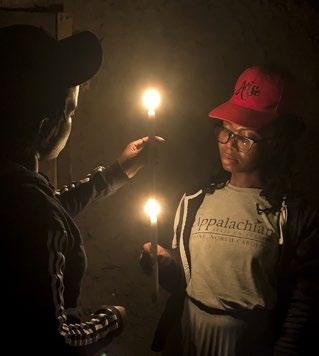

God’s Word, and even used phonetics to help teach people to read and write.
South African missionary Grant Franke and his family have lived and worked among the Nahara for eight years. He taught the team phrases in the Nahara language every day and they went around the village repeating those phrases, inviting people to come to Bible teachings as well as lessons on agriculture and literacy. Grant said attendance went up by 1000 per cent and that many women came along – a rarity in that community.
The young teenage girls of the village bonded with the mostly female Harvest team. These girls live in a physically dangerous environment, and they felt safe with the team members. When saying goodbye, many of the girls were sobbing.
Grant said: “It is unbelievably effective when Africans are missionaries to Africa. They built more trust in four weeks than I could in four years.” He says he is frequently asked when the team will return. Sadly, there are usually few long-term effects in communities visited by short-term mission teams. They build goodwill or address social needs, but the real long-term results come in the lives of team members and
their churches. Harvest Team member Elle said: “I had considered pursuing a career as a missionary - now I’m surer I want to be in this full-time.”
Most long-term missionaries say going on short-term trips confirmed their callings. Those who do not go are more likely to become long-time supporters and prayer partners of those on the field.
Short-term trips create excitement in the local church, which rallies support and prayer for those they send. Shortterm trips are an effective tool for mobilising people to go, to give, and to pray for people groups around the world.
Are you interested in short-term missions? Contact August Basson at august.basson@aimint.org to learn about the Harvest Teams.
To pray for the Macua Nahara, visit: www.nahara.info.
Media specialist Hailey McNeill accompanied the Harvest Team. Watch their exciting journey on Facebook at www.facebook.com/The-HarvestAfrica-116173849768069/. It will inspire you!
The AfriGO team has put together a list of resources that will help you understand what missions is, how to get involved, and how to bring people along with you into God’s plan of blessing for the world! Every course teaches God’s epic plan to bring all peoples to Himself. Each one shows you how, through Scripture, God built a purpose into the nation of Israel and the Church to know Him, love Him, and share his salvation. But which one is right for you? It all depends on your situation and where you are headed.
COURSES TAUGHT BY A TRAINED FACILITATOR
The following courses capture the philosophy of Perspectives and are available through Simply Mobilizing www.simplymobilizing.com. After attending, you can train to become a facilitator.

First let’s meet the “grandfather of missions trainings” — Perspectives
This 15-week course requires a trained facilitator and 50+ hours of classes and homework. But it is guaranteed to bring a new level of understanding of the biblical mandate to take God’s message to the nations. It is designed around four “perspectives”: biblical, historical, cultural and strategic. www.perspectives.org
Every Christian should take KAIROS, even if they already have a vision for reaching the world. Presented by trained leaders, Kairos’ nine inspiring sessions include videos, small group discussions and homework.
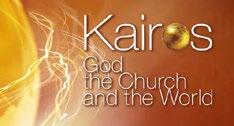
Kairos has opened my eyes. One of the sessions was about nominal Christians and dedicated Christians. Through Kairos, I’ve learned that missions is the centre of Christianity. My heart should be for missions as Christ’s heart is for mission. Maybe I’m not as dedicated as I thought if I’m not dedicated to the heart of Christianity, which is missions. It has challenged me to pray, not just for myself and those around me, but also for the nations. Sarah, third year trainee in Family Medicine
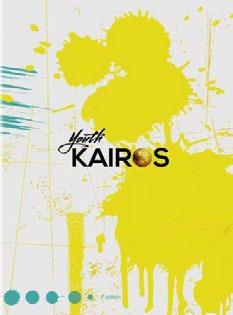
This is for young people ages 16 to 20. Presented by a trained facilitator over three and a half days, it retains the vision and inspiration of the KAIROS course. www.facebook.com/ youthkairos
The Unfinished Story
Like Kairos, TUS traces the arc of God’s mission from Genesis through the gospels, and through 2000 years of the world Christian movement.

Local churches can use it as Sunday school or Bible study material. To be a TUS leader requires attendance at a class and a few hours of training. TUS shapes a Biblical worldview that sees our participation with God in mission as both an exciting adventure and as the essence of what it means to follow Jesus!
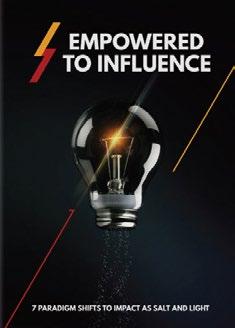
This four-session facilitated course uses the videos of Singaporean businessman Ken Chua. Teaching is centred around seven new ways of thinking that are required for believers to become influencers for God in their workplace, church and home. Though most beneficial for business people, it will empower any believer.
Interface
Interface answers the question, “What does a church on mission with God look like?” An introductory presentation is followed by a day seminar or a longer workshop. It explores the structure of a church that will nurture, equip and release God’s people into fruitful ministry.
For information on where and when to take the courses, contact:
West Africa: dhydeappiah@gmail.com
East Africa: samuangugi@gmail.com
Southern Africa: keithkoster1@gmail.com
This seven-lesson small group study presents current information on the state of Christianity around the world, along with unreached people groups and other major religions. It teaches five habits that all believers can put into practice to become world Christians. www.mobilization.org/ resources/live-missionally/ xplore/


This next step teaches what it takes to become a mobiliser and start a missions movement among your friends and contacts. Lessons include how to use Scriptures to show others God’s desire for every nation, and how to direct others to places that have little or no Gospel access.
www.mobilization.org/ resources/mobilize-others/ go-mobilize/
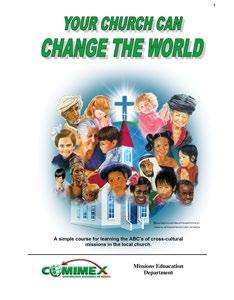
This free manual can be customised for your context. Written in Mexico and designed for mature Christians, sections include Why a Church Should be Involved in Missions, Praying for the World, Financing Missions, and The Missions Committee in the Local Church. www.yourchurchcanchangetheworld.org/
If you are passionate about missions and want to see others realise their potential to go, pray, or support missions, then you can be a mobiliser. Partner with local organisations or contact Simply Mobilising for more info: simplymobilizing.com/mobilizers/mobilizer-pathways/
Part of mobilising is training to go out or to serve where you are. Many materials are out there, though most require enrollment in a programme. Here are a few free resources you can use in your own context.
This free, sevenlesson video series is aimed at urban students. It explores major questions and barriers believers encounter as they pursue cross-cultural ministry. These streamable videos contain great advice from experienced people. Use them to work through key issues as you consider being a missionary.

www.mobilization.org/resources/prepare-for-ministry/

Many believers desire to reach out to people in their communities who are of a different culture or religion but are afraid due to lack of experience, knowledge or skills. This workshop has fun activities and equips attendees to communicate with people across cultures — a vital skill both locally and globally. A church member can lead this after a short training. www.simplymobilizing.com/courses/crossing-cultures/

Many of the unreached are Muslim, yet most Christians know little about the history or beliefs of Islam. EWI is a facilitated course which will enlighten you, give you insights into world conflicts, and dispel myths about Muslims. You’ll learn how to pray for, connect with, and reach out to Muslims near you. Classes are in Ethiopia, Kenya, Nigeria, South Africa and Rwanda. info@ewi.org www.encounteringislam.org
SIM’s Let’s Go! interactive handbook does not replace formal training, but has practical resources to make training more useful. Stories and testimonies, brochures, articles, Bible studies, and short media clips are all designed to be gone through with a mentor over 6 to 12 months. Find these free materials online: bit.ly/LetsGOpdf – PDF version bit.ly/LetsGOsupplemental – supplemental material bit.ly/LetsGoVideos – videos for the chapter.

BY MERCY KAMBURA

Kehinde Ojo was among the crème de la crème of his university, receiving his training in electrical and electronics engineering. He was even handpicked as a management trainee in one of the highest paying oil companies in Nigeria.
As an industrial training student guaranteed a job in the company, his career path was well-lit and certain. But when the training ended, he didn’t return. Two years later he visited his friends who got the job. They were gobsmacked! Who in his right senses would let such an opportunity slip away?
“I got a better job,” he announced. He had accepted the call to serve God with the International Fellowship of Evangelical Students (IFES). His role would entail discipleship and mission mobilisation among campus students.
Today, Kehinde is a trainer, consultant, and mentor. After 20 years with IFES Nigeria, he was invited by IFES to pioneer a new global program to help national movements within IFES become sustainable in their local fundraising for ministry effectiveness. Developing a work plan, he recruited a global team to work with him. He trains and mentors leaders regularly in Africa, Eurasia, Caribbean, Latin America, East Asia and South Asia regions of IFES and has provided support for other organisations globally in their effort to become locally sustainable.
With a team of 15 facilitators globally, Kehinde conducts trainings in up to a dozen countries annually. No corner of the world is too out-of-the-way for him, with some locations including Fiji, Vanuatu, Guyana, Jamaica, Nepal, and the Gambia.
For mobilisation to be effective, Kehinde advises three key strategies for the mobiliser:
1. Authenticity
“The most effective strategy for any mobiliser should be authenticity,” he says. “It’s the one thing that always works. As a mobiliser, people want you to be real. The younger generation wants to see you living life and applying the principles you are urging them to follow. “
2. Consistency
“Live the principles you teach and pursue the vision you have. Scripture is timeless. Be consistent with your biblical truths and show people the unchanging call to missions.”
3. Don’t prescribe actions, ask questions.

“A prescriptive way of getting people to your vision is to tell your experience. Yet, people may not fully identify with your experiences and may not be able to see how they can come in and contribute to the vision.
Instead, let people engage from their immediate situation – how it is applicable to them. With this in mind, they can provide the response.”
Kehinde grew up in southwestern Nigeria. Despite his Christian home and being baptised at eight days old, he only gave his life to Christ while in university. It was not only
salvation that he acquired during these formative student years, but also his life’s calling.
This came a week before his final examination. “I was very uneasy that Sunday, I even left the service to pray alone in the garden.”
He could feel something was about to happen to shift his life focus, but he couldn’t place a finger on it. During the service, God spoke through the preacher that among the graduates, God was calling one to serve him.
“I was the only one that went forward that day; there was no confusion at all,” he adds.
Thirty-one years later, all his life choices have been shaped by that one decision.
For the past nine years, Kehinde’s mandate is to mobilise the national movements of IFES to appreciate the gains of indigenous sustainability. This is done through research, training, mentoring/coaching, and arranging matching grants. As a mobiliser, Kehinde highlights three resources Christians can use in advancing the gospel.
1. Time
The common denominator for everyone is time! We all have time in equal proportion. How can some partners who may not have money or skills use their time to serve the ministry? They can primarily use part of their time to pray for the mission and also visit mission partners.
2. Talent
Some are very skilled and competent in their professions. These people can volunteer their services to the ministry and provide services that otherwise would have been paid for.
3. Treasure
The treasure category may not have time or talent to make
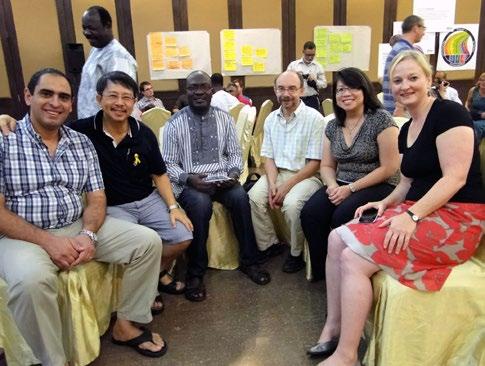
available, but they can give resources in cash or materials that can meet the need of the organisation.
“Resources of time, talent and treasures are everywhere! Over the years, most ministry leaders have focused on the mobilisation of money, at the exclusion of other resources. Leaders need to unpack the availability of these other resources in their immediate environment and release them for ministry enhancement,” he says.
Twenty-nine years later, has he struggled with the decision to join the discipleship and mobilisation bandwagon? No, he hasn’t.
“I have not stopped using my engineering knowledge and skills even in my current job; I still apply some engineering principles to make decisions.” The words in 1 Chronicle 29:1 have been a continuous encouragement. King David said to all the assembly: “My son Solomon, whom alone God has chosen, is young and inexperienced; and the work is great.”
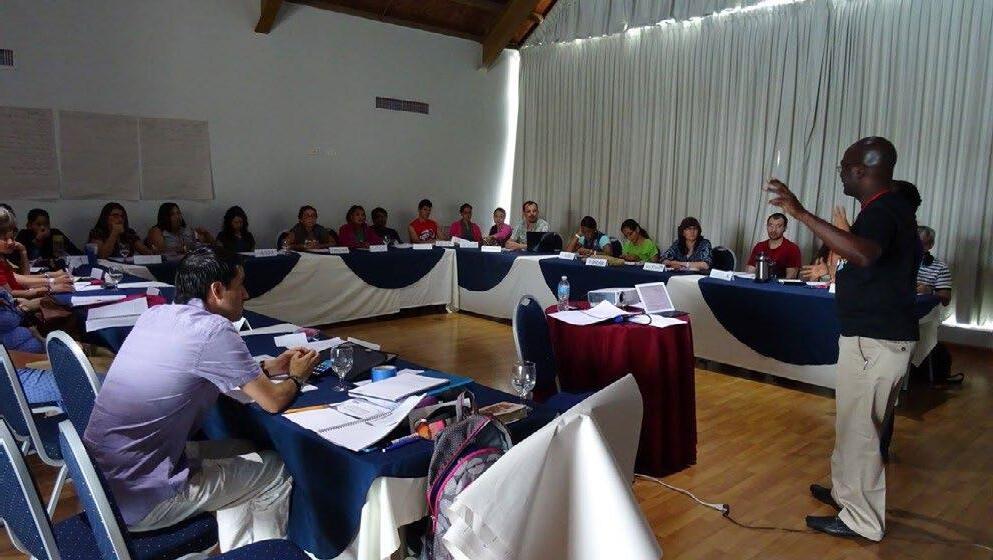
By J. Hudson Taylor
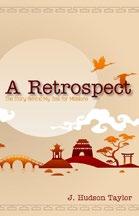
Hudson Taylor is internationally recognised as the father of the faith missions movement. This short book, available for free, tells the story in his own words of how he sensed the call to leave his home in England and go to China. He shares the steps he took to learn how to trust in God alone for his sustenance in a foreign land. His example and witness will encourage the reader to run his/ her own race with patience, too. Time after time, God spared his life and opened doors for him. Highly recommended for anyone who wants to be inspired and encouraged in their faith journey!
Available on Amazon here: https://amzn.to/2OmK4rZ
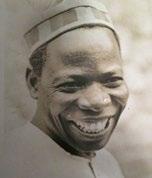

Do you want to pray for people who are unreached with the Gospel but you aren’t sure where to find information? An easy way to impact eternity through prayer is to visit the Global Prayer Digest website. Each day, information and a prayer guide for an Unreached People Group is posted. Every month, a different topic related to the religions of the Unreached is explored in an article. www.globalprayerdigest.org/ to see the publication and join in prayer with others.
An historic moment was witnessed in September 2019 with the creation of the first Christian Press Association for francophone Africa. This took place during the first Introduction to Magazine Publishing training conference, held in Abidjan, Côte d’Ivoire. The new association will encourage Christian magazines and newspapers as voices in their societies.
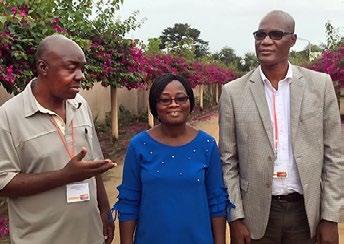
The vision was presented by Dr. Jules Ouoba, Director of the Centre de Publications Évangéliques in Abidjan, that had partnered with Magazine Training International to hold the conference. The 100-strong gathering nominated, voted for and commissioned Guy Irie (President, right); Tshanyi Mutshuka Israel (General Secretary, left) and Hilary Honoré (Treasurer, centre).
Rev. Panya Baba passed into the presence of his Creator on Saturday, 19 October. Rev. Baba began his missionary career at the age of 17. He would become the founder of the Nigerian Evangelical Missions Movement (NEMA), the
Director of the Evangelical Missions Society of the ECWA Church, and the President of the ECWA church denomination in Nigeria. Seventy years after his first assignment, he had transformed the face of missions in West Africa. AfriGO Vol 4, Issue 2 features an article about his life’s work: www.bit.ly/37RL8fc
The Movement for Africa National Initiatives (MANI) has released details of their event which takes place every five years. The venue is Abidjan, Cote d’Ivoire.
Dates are March 8-12, 2021. Put this in your schedules and begin to plan! www.maniafrica.com/mani-events/.
When God shows you what he is doing, it’s an automatic invitation to join him.
These words from a Bible study were a great revelation to me. Yet my decision to work as a mobiliser and missionary was a process, not just a verse popping out of a Bible page. I always knew I wanted to serve God; I just didn’t know how.
When we started hearing the Macedonian call, we were not married yet and it was a hard decision. I had just completed electrical and electronics engineering at Jomo Kenyatta University of Agriculture and Technology, while Julia was in her final year studying information technology. We laid out plans for what we wanted to do. We hadn’t thought of being involved in mobilisation full-time.
When we took the Kairos course together in 2010, it became clear what I wanted to do –mobilise for missions! Through the course, God helped us overcome our insecurities. We embarked on full-time ministry with Mission Campaign Network (MCN).
Mobilising for missions is prophesying. The prophets called the people back to God’s purpose. We are basically coming back to the real purpose that we exist – to spread the gospel to the ends of the earth, to become Christlike, and to create shalom in countries, cities, and villages. Mobilising is not just for the unreached people groups, although they are a crucial priority. It’s about seeing the glory of God in every area of society.
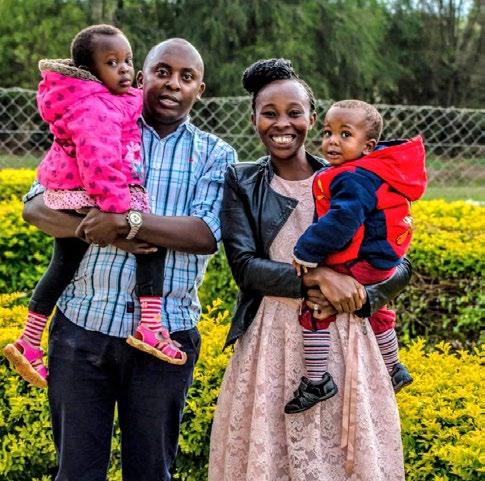
to the world. In MCN, we mobilize the church to be active in missions.
Every believer is encouraged to mobilise, go as a missionary, or facilitate the people who will go, whether as support-raising missionaries or as professionals and tentmakers. We also highlight the important role of prayer in missions.
As mobilisers, we, too, are blowing the trumpet clearly to the church and declaring it’s the time for Africa to arise and take the gospel to the world.
MCN’s training pathway begins with short, two- or threehour seminars showing people that mission is the basis of the Bible. We highlight what has been done, what is being done now, and what remains.
We partner with any expression of the body of Christ and with like-minded organisations locally and globally. Our courses are not created by MCN but by our partners, such as Simply Mobilizing International, the Center for Mission Mobilisation, and Perspectives. We also train in Encountering the World of Islam.
From 2011 to 2018, we worked in Nairobi, Kenya, conducting 34 Kairos courses with over 1000 university graduates and churches.
In the Old Testament, the prophets would blow a trumpet to warn or to convey an important message. As mobilisers, we, too, are blowing the trumpet clearly to the church and declaring it’s the time for Africa to arise and take the gospel
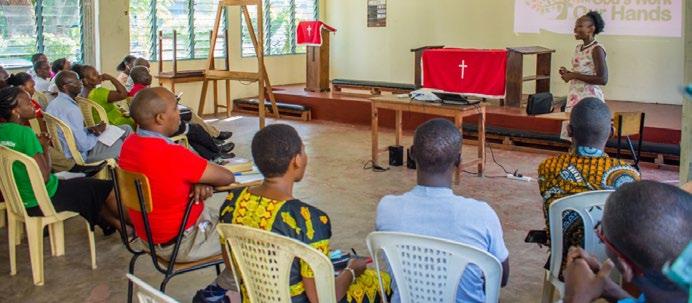
MCN had always desired mobilisation to happen in Mombasa, the coastal city of Kenya. Mombasa has an almost a half-half ratio of Christians to Muslims. They are largely Swahili and Arabic. Most of the Christians do not know how to reach out – or even that they should. We were invited to pioneer there, and we agreed, moving in May 2018. With the mission task, especially the remaining task of world evangelisation, mobilisation is the most strategic thing to do. The church needs to accomplish the purpose for which it exists.
The question we want everyone to ask is, “What’s my place in missions?
www.missioncampaignnetwork.org
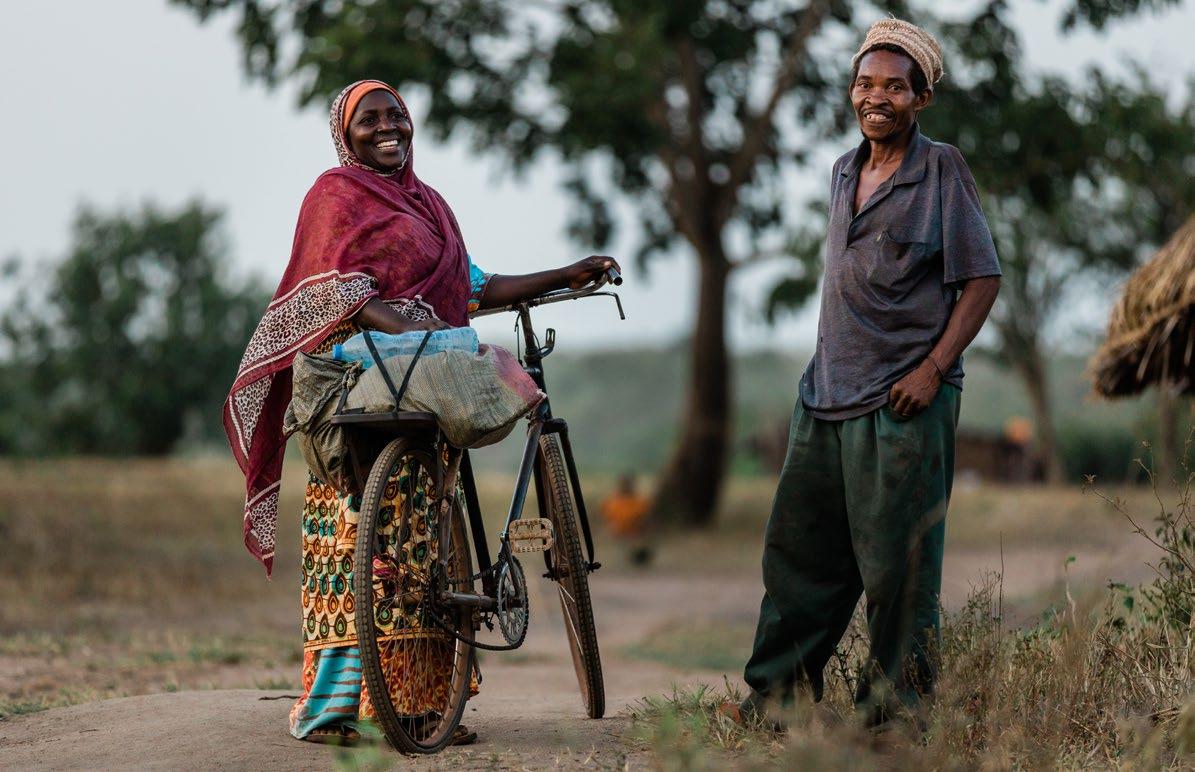
The Zigua are a Bantu people living in northeastern coastal Tanzania. Their language is Chizigula, and most also speak Swahili fluently.
They settled near Dar-es-Salaam, having fled the slave trade in the east. The Zigua people trace their history to ancient times. Today their population is about 631,000. They are among the marginalised people groups in Tanzania with very low levels of formal education.
The majority religion is Islam mixed with traditionalism and ancestral worship. Children are often sent to Muslim school, called a madrassa, for religious studies. The Christian population is very low at nine percent.
• The Zigua fled slavery to settle in coastal Tanzania. Their population is about 631,000.
• Their main religion is Islam, deeply entwined with traditionalism and ancestral worship. The population is only 9% Christian.
• They are marginalised with high levels of illiteracy and unemployment.
• Translation work has resulted in a New Testament and the Jesus Film.

: afritwende@afrigo.org AFRIGO: info@afrigo.org
SIM East Africa
Tel: +251 911 206 530 east-africa.office@sim.org
SIM West Africa Tel: +233 30 222 5225 wamo.personnel@sim.org
The Zigua are a close-knit community. They live together in mud-walled and grass-thatched huts clustered together. Their livelihoods are small scale farming and fishing. Like many coastal towns, their main cash crop is sisal and main food crops are maize and sesame.
Missionaries have reached out to the Zigua for many years. In 2017, Africa Inland Mission (AIM) started work in a new area with a view to share the gospel and to improve livelihoods. Translation work means that the New Testament and the Jesus Film are now available in Chizigula. Learn more: https://prayafrica.org/project/zigua-of-tanzania/
• that the gospel shall be increase and be fruitful.
• for the Zigua to find true freedom in Christ from traditional religions and ancestor worship.
• for more workers to go and live among them, sharing the gospel in heart, word and deed.
• for new believers to hold fast to their faith and reach out to their families and community.

! : info@afrigo.org AFRÍDE: afride@afrigo.org
SIM Southern Africa Tel: +27 21 7153200 za.enquiries@sim.org AIM International amc.io@aimint.org aimint.org/africanmobilization/